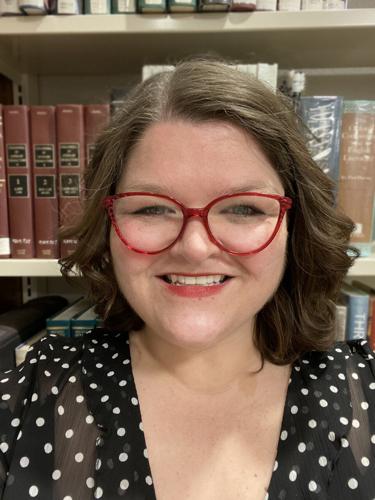MARSHALL COUNTY, Ky. — Community members in Marshall County shared concerns for their local library on Monday as a Supreme Court case threatens funding for free internet access.

That case involves a conservative consumer awareness group challenging the $7 billion Universal Service Fund.
It's where the Federal Communications Commission pulls money to provide reduced-price phone and internet service, including internet access in libraries called E-rate funding.

For the Marshall County Public Library, 90% of the technology budget comes from E-Rate funding reimbursement. Last year, that reimbursement reached up to $70,000. That funding covers internet access for those using library computers and hotspots.
Library staff and community members who depend on the library's internet access say losing the resource would be devastating.

Tonya Lindsey is among the many who depend on the free internet at the library. With a job that involves a lot of traveling, she finds herself in the library about twice a week just to access the internet.
"It's very useful to be able to come in here and do some of my office work...It's very disheartening to think about such a great community losing this critical funding," said Lindsey.
Library Director Tammy Blackwell is worried too — specifically for those who can't afford internet or just don't have access.

Marshall County Public Library Director Tammy Blackwell.
"In a community like Marshall County, where you have a lot of rural areas, there are areas where internet isn't accessible to everyone. It's not ran out there through, you know, Mediacom, or anybody like that. Starlink is way too expensive for the people who will live out there, they just have no access, and it's almost impossible to exist in 2025 without internet access," said Blackwell.
With the ongoing SCOTUS case and President Donald Trump's recent executive order eliminating another source of funding for libraries, Blackwell is concerned for the state of libraries nationwide.
"I think without federal assistance for technology, you will see a decrease in technology in libraries, which will translate to barriers to education, barriers to job seekers, barriers to health care in rural communities. Telehealth is so huge for rural communities, and without libraries being able to offer that to those who live in rural areas, we're going to see a decrease in quality of life," said Blackwell.
The American Library Association filed an amicus brief on the U.S. Supreme Court case. An amicus brief is legal document submitted by an individual or organization that's not directly involved in a case, but with a strong interest in the outcome. It offers additional information or perspectives to assist the court in making its decision.














